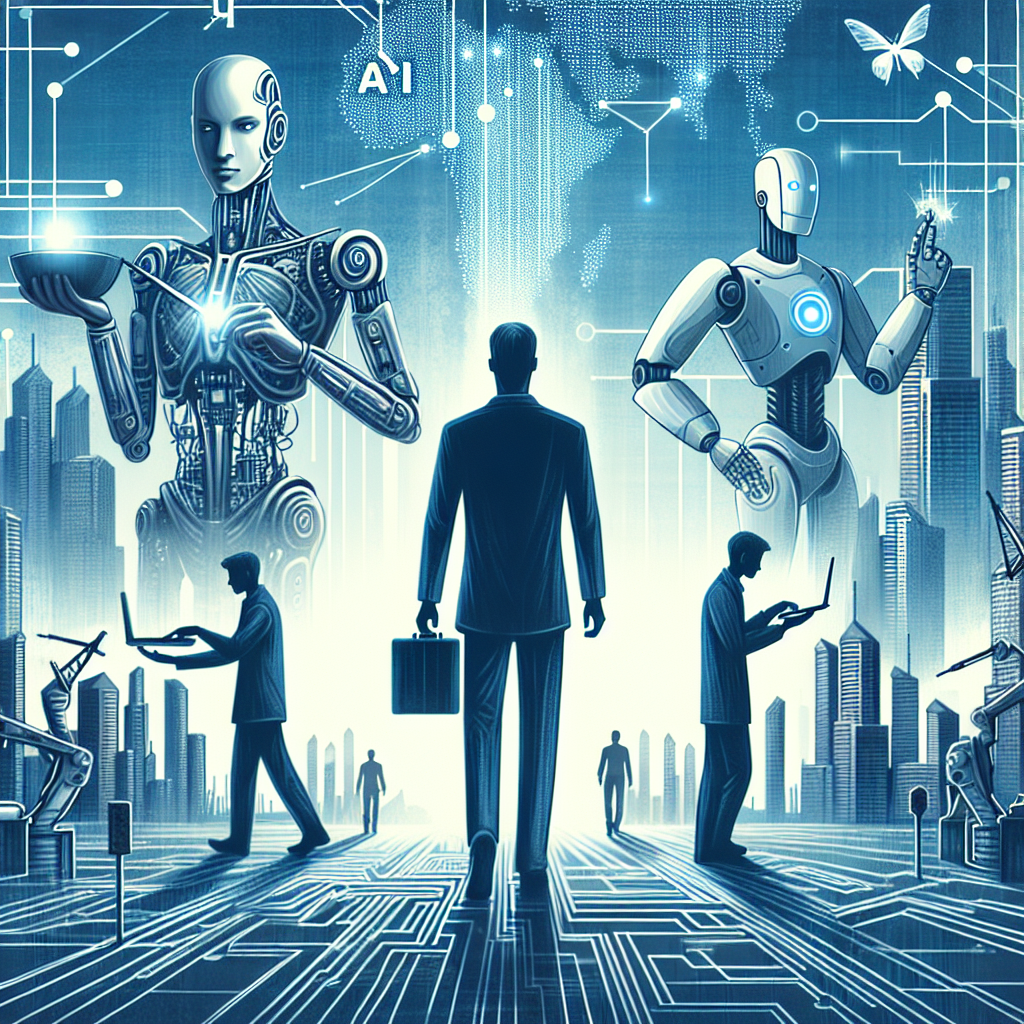The rapid advancement of artificial intelligence (AI) technology has sparked concerns about its potential impact on the future of employment. As AI becomes more sophisticated and capable of performing tasks that were previously done by humans, many fear that it will lead to job losses and threaten job security for millions of workers. In this article, we will explore the threats to job security posed by AI and discuss the implications for the future of work.
AI and Job Automation
One of the primary concerns about AI is its ability to automate tasks that were traditionally performed by humans. AI systems can now perform a wide range of tasks, from data analysis and decision-making to customer service and even creative tasks like writing and design. As these technologies continue to improve, more and more jobs are at risk of being automated, leading to potential job losses for millions of workers.
According to a study by the McKinsey Global Institute, up to 800 million jobs worldwide could be automated by 2030. This represents nearly one-fifth of the global workforce, with significant implications for job security and economic stability. Industries that are most at risk of job automation include manufacturing, transportation, retail, and administrative support.
The Impact on Job Security
The rise of AI and automation poses a significant threat to job security for workers in a wide range of industries. As machines become more capable of performing tasks that were previously done by humans, many jobs are at risk of being eliminated entirely. This could lead to widespread unemployment and economic instability, particularly for workers in low-skilled and routine jobs.
In addition to job losses, AI also has the potential to create a more precarious work environment for those who remain employed. As companies adopt AI technologies to streamline operations and increase efficiency, workers may be expected to take on more responsibilities and work longer hours without additional compensation. This can lead to increased stress and burnout among employees, further eroding job security and job satisfaction.
The Future of Work
Despite the threats posed by AI to job security, there are also opportunities for new types of jobs and industries to emerge. As AI technologies continue to evolve, new roles will be created that require human skills such as creativity, critical thinking, and emotional intelligence. These new jobs may be in fields such as AI programming, data analysis, and robotics maintenance, offering opportunities for workers to adapt and thrive in the changing labor market.
To prepare for the future of work, workers will need to develop skills that are in demand in the age of AI. This may include technical skills such as programming and data analysis, as well as soft skills such as communication, problem-solving, and adaptability. Lifelong learning and upskilling will be essential for workers to remain competitive in the job market and secure employment in the face of advancing AI technology.
FAQs
Q: Will AI lead to widespread job losses?
A: While AI has the potential to automate many tasks currently performed by humans, it is unlikely to lead to widespread job losses in all industries. Some jobs may be eliminated, but new roles and industries are also likely to emerge as a result of AI technology.
Q: What can workers do to protect their job security in the age of AI?
A: Workers can protect their job security by developing skills that are in demand in the age of AI, such as technical skills like programming and data analysis, as well as soft skills like communication and problem-solving. Lifelong learning and upskilling will be essential for workers to remain competitive in the job market.
Q: How can companies mitigate the impact of AI on job security?
A: Companies can mitigate the impact of AI on job security by investing in training and upskilling programs for their employees, as well as by implementing policies that promote work-life balance and employee well-being. By prioritizing the needs of their workforce, companies can create a more stable and secure work environment in the age of AI.
In conclusion, the rise of AI poses significant threats to job security for workers in a wide range of industries. Job automation and the potential for widespread job losses are real concerns that must be addressed by policymakers, businesses, and workers alike. By preparing for the future of work and developing the skills needed to thrive in the age of AI, workers can adapt to the changing labor market and secure employment in the face of advancing technology.

